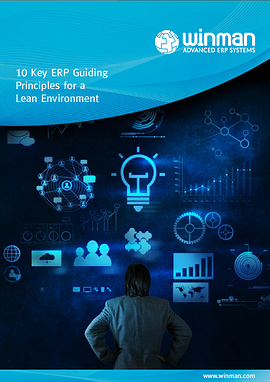 Lean manufacturing is extremely common in the manufacturing industry. Its use is aimed at efficient use of resources and production of high-quality products. A unique feature about lean manufacturing is that it focuses more on perpetual improvement of products rather that the final output. By shifting the attention to the process in which the product is made, defaults are minimised, the right raw materials are used, staff are properly organised and coordinated, and the costs of production are properly optimised. For the process to work effectively, the manufacturing industry should consider the following five principles that will help in implementing lean techniques:
Lean manufacturing is extremely common in the manufacturing industry. Its use is aimed at efficient use of resources and production of high-quality products. A unique feature about lean manufacturing is that it focuses more on perpetual improvement of products rather that the final output. By shifting the attention to the process in which the product is made, defaults are minimised, the right raw materials are used, staff are properly organised and coordinated, and the costs of production are properly optimised. For the process to work effectively, the manufacturing industry should consider the following five principles that will help in implementing lean techniques:
Value
When manufacturing any product, as a manufacturer, you should consider value as what the customer needs. At many times, manufacturers tend to think that value is created from what they think is best. However, they forget that the end user of their products is the customer. Therefore, if you want to create the highest value in your product, you have to find ways of determining customer needs. There are different ways that you can use to identify the various customer needs before manufacturing your product:
- Quality function deployment
- Brainstorming
- Identifying market gaps
- Providing different choices and identifying the most preferred choice
- Issuing out questionnaires
Engage only in activities that improve the value of your product or service to the customers to minimise or eliminate wastage. Remember, your customers are the key determinant of what value means to your products. Involving them in creating value of your products is inevitable.
Value stream
In order to create value, you will have to go through various processes, which make up the value stream. The processes range from finding the most suitable raw materials to the final use of the product. These processes engage steps that add value and others that do not add value. As a lean principle, it is the duty of the manufacturer to limit the processes only to value adding steps as much as you can. While some of the non-value adding steps may not be fully avoidable, lean manufacturing advocates for total removal of these steps.
One best way of identifying the value stream in a manufacturing company is departmentalisation. Departmentalisation helps in choosing the right staff for the different functions found in different departments. There is no overlapping of functions and time is used efficiently.
Inventory flow
As you continue improving the value of a product from one process to another, it is essential to ensure a one-piece-flow system. Lean manufacturing requires a smooth flow of processes as the raw material is being designed to suit the customer needs. The processes need to flow in such a way that there is a systematic way of creating the value of the customer’s needs. Creating a value stream is essentially important in that the processes would continue even after reshuffling of employees. This is because there is a perfectly designed way of going through all these processes.
Value pull
This principle requires you to set out ways that will make the customers look for the product rather than pushing the product to them. If you did not design the product to suit your customer’s needs, you would have a hard time persuading customers to purchase your product. This explains why thousands of desktops might be lying in an electronic store if they did not meet the needs of the customers.
Striving for perfection
Lastly, always be driven by the urge of perfecting your products. Remove waste processes from your operation. Deliver products within the designated time, employ continuous improvement tools like Kaizen, and establish a positive relationship with your employees and customers.





.png?width=137&height=137&name=MicrosoftTeams-image%20(4).png)